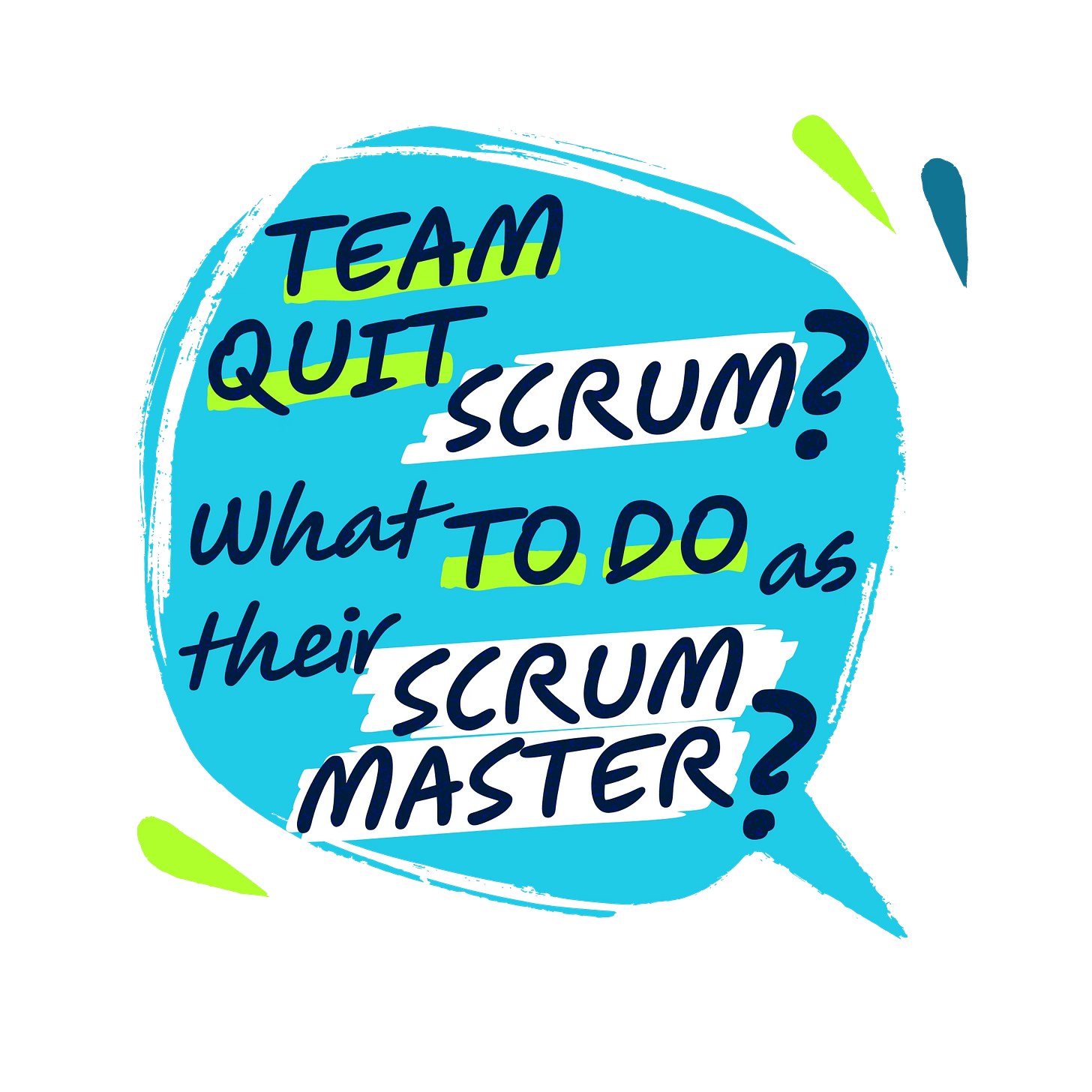Team Quit Scrum? What to Do as their Scrum Master?
The adaptability and leadership skills practised through Scrum can be invaluable in typical business and team stewardship challenges, even when a team transitions away from Scrum itself.
Being a Scrum Master is a step towards greater leadership inside the organisation. Being a true leader means leading, training, and coaching the organisation, helping your colleagues and stakeholders understand the importance of an empirical approach for complex work, and sometimes being the leader you wish you had.
In the dynamic landscape of product development, the role of a Scrum Master can evolve beyond the confines of traditional Scrum practices. Note that there is a difference between accountability, as the Scrum Master is described in the Scrum Guide 2020, and the conventional definition of a role in an organisation.
The Scrum Master is often the first step towards leadership at other organisational levels. Your team, colleagues, organisation, and stakeholders will benefit if you bring your empirical mindset and servant leadership to the highest executive levels.
This shift requires a creative approach to leveraging Scrum Master expertise in new contexts, at the team level or in the broader organisation.
1. Facilitating Continuous Improvement:
Even outside the Scrum framework, continuous improvement remains vital. With a Scrum Master's help, the team can constantly seek ways to enhance their workflows, efficiency, and product quality by encouraging regular reflection on processes and outcomes and fostering an environment where constructive feedback is valued and acted upon.
2. Enhancing Team Collaboration:
The collaborative spirit fostered in Scrum environments is beneficial in any way of working. A Scrum Master can apply their skills to strengthen team dynamics, ensuring clear communication and effective collaboration, which includes mediating conflicts and facilitating discussions to align team goals.
3. Empowering Team Members:
Scrum Master skills can help empower team members by delegating responsibilities, encouraging decision-making at the individual level, and supporting personal and professional growth. This builds a sense of ownership and motivation in the team and drives them to excel in their practice.
4. Maintaining Customer Focus:
A core aspect of Scrum Master's accountability is ensuring the team remains focused on delivering value to the customer. This customer-centric approach is crucial in any way of working, and a Scrum Master can continue to champion this, ensuring that the team consistently focuses on customer needs and feedback in their work.
5. Promoting a Learning Culture:
A Scrum Master's will foster a culture of continuous learning and adaptability that doesn't end with Scrum. In any way of working, there's an ongoing need for team members to grow their skills and knowledge, which includes organising learning sessions, encouraging cross-skilling among team members, and creating opportunities for innovation and experimentation. By nurturing a culture where learning is integral, the team remains agile in the truest sense, capable of adapting to new challenges and technologies.
6. Driving Effective Communication:
Effective communication is the backbone of successful teams, a principle that holds beyond the boundaries of Scrum. Anyone with Scrum Master experience can utilise their skills to establish and maintain open lines of communication within the team and with stakeholders, which might involve regular check-ins, ensuring transparency in decisions and processes, and using tools that facilitate clear, concise, and timely communication, allowing the team to operate more cohesively and respond rapidly to changes.
The transition from Scrum to another way of working does not diminish the value a Scrum Master brings to a team.
While company roles and job titles may change, the skills, mindset, and practices cultivated in the Scrum environment are highly transferable and can significantly contribute to the success and resilience of teams in diverse contexts.
By applying their deep understanding of team dynamics and process optimisation, an experienced Scrum Master can continue their leadership journey and drive team performance and product excellence, irrespective of the way of working chosen by the team or the organisation.



